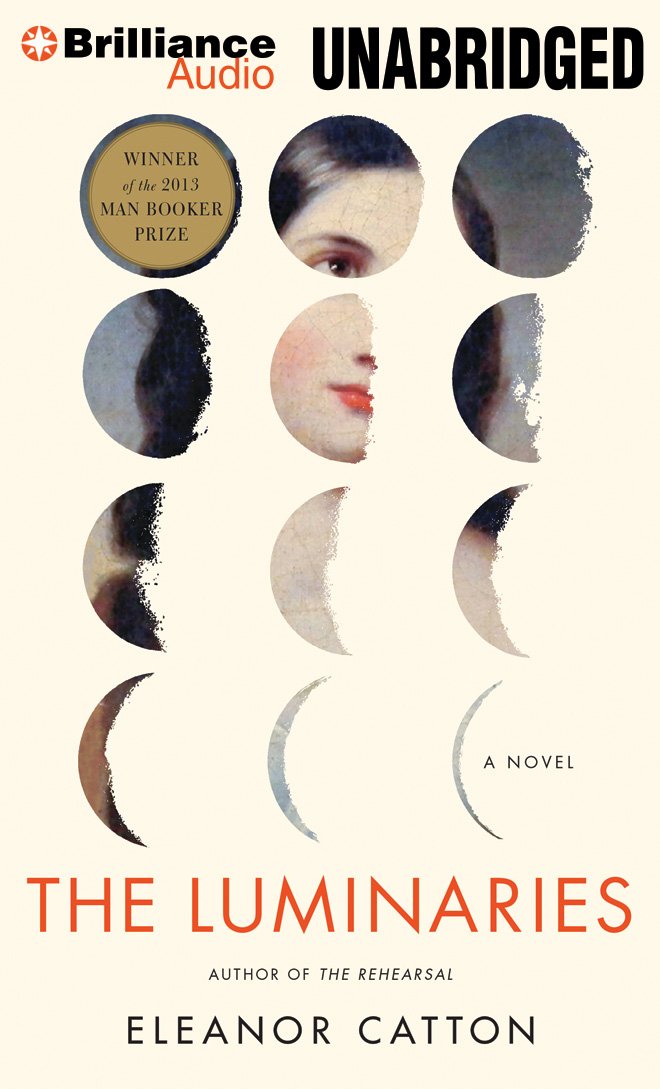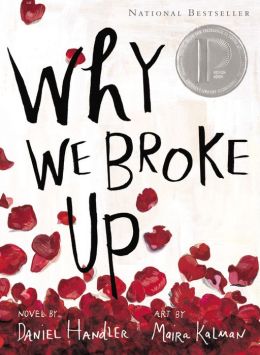 |
| Prefrontal cortex curls, 10 reps x 3 sets |
How do people select the books they read? I am curious about this. Is it recommendations from friends? Book club selections? What's at the top (or bottom) of the New York Times bestseller list? An intriguing cover that catches your eye as you browse the bookstore? An Amazon.com "if you liked X, you may also like Z" recommendation? Do you go by author, finding one you like and reading everything she's ever written? Do you go by genre? By price?
I want to read books that are part of a national conversation, that capture a zeitgeist of some sort, and picking prize-winning books is a straightforward way to get there. James McBride's The Good Lord Bird wouldn't have made my to-read list, but once it won the National Book Award, I promptly added it to that list. (I have an actual list of books I intend to read before the year's end. There's very little whim involved. I sound like such a fun person, don't I?)
 |
| Won a Man Booker. Is in my house. My God it's long. Am intimidated. |
I try to read what my kids are assigned at school. I've recently read Black Boy, Their Eyes are Watching God, The Grapes of Wrath, One Flew Over the Cuckoo's Nest, and A Raisin in the Sun. I'm not sure I'd have read any of these without prompting. I really enjoy discussing the books with my kids after we're done, and helping them think through the essays they inevitably have to write. (I line edit but resist the urge to do more.)
I've assigned myself two annual tasks: 1. Read a Charles Dickens novel, and 2. Read a Margaret Atwood novel. I very much enjoy both and I'd like to have all their works under my belt before I kick the bucket. Once I'm done with those authors, assuming the bucket is unkicked, I'll probably assign myself others. George Eliot? George Orwell? George Sand? Proust? Not Proust. He's a Marcel.
 |
| Jon Stewart interviews author-teen Malala Yousafzai |
 |
| OK, it won an award. But it's also flurffy YA, and a bestseller, so there. |
I'd be remiss if I didn't give a shout-out to our locally-owned bookstore. For birthdays and other gift-giving occasions, I like to wander in and chat with the staff. The place is so much fun to browse and the staff has excellent suggestions. I'll buy a dozen or so books from them a year, some which I'd never have found on my own.
I realize this outs me as being an even weirder chick than you already thought I was: it's as if Reading Books is my profession. Stupid profession. I make $0.00 an hour, which is even—I looked this up—a bit less than minimum wage. But I attend to my book-reading as seriously as if it were a career: I love my books, and take extreme care in selecting them. Hey, we all have our hobbies.
So what's on your TBR? How did you select those titles? Are you more spontaneous than me?
As I got older, I went went more toward essayists, physicists, poets and humorists. Avoided novels assigned to my kids in high school because, like the titles you mention, they're all dead-depressing. Enjoyed discussing more worthwhile writers with family --Proust, Laforgue, Colette, Woolf... but if you've never read a Dickens novel, I recommend David Copperfield --you'll find everybody you've ever known in there, even me, even you, I bet.
ReplyDeleteI have read a few now but not David Copperfield. Looking forward to it! Bleak House is my pick for this year. That one's going to take a while.
DeleteI like to read a mix. I loved The Deerslayer by James Fenmore Cooper, Hard Times by Dickens, and Paradise Lost. But I also loved The Hunger Games Trilogy, Martin's Song of Ice and FIre, and Roth's Divergent series (I'm reading the last one now).
ReplyDeleteWe are reading Divergent, too. Well, the 16-year-old finished Allegiant, the 12-year-old is hesitant to finish it ("I'm afraid everyone is going to die. Everyone tends to die in these kinds of books.") And I haven't started it (Allegiant) yet, but enjoyed #1 and #2. Also have enjoyed HG and GoT.
DeleteI try to find the most interesting thinkers of the best writers. It's all so selective anyway because there are just so many books out there. But then I want everyone else to have read the same stuff I have.
ReplyDeleteYes! A resounding "yes" to each of those three sentences. When I finished "Cloud Atlas" I thought, that David Mitchell. He isn't just a good writer, he's a bit of a genius. So now you have to read that so we'll have read the same stuff. :)
DeleteI read where my hunger takes me. If I don't feel the hunger, I don't read it. If I do, I'm a piggie.
ReplyDeleteThat makes sense. It's a far more sensible approach than mine. :) But how do you find the books you are hungry for? Do you browse a bookstore? Read a review? Stick to a genre? Go by recommendation? There must be something that connects you to a particular book.
DeleteThis comment has been removed by a blog administrator.
ReplyDeleteThis comment has been removed by a blog administrator.
ReplyDeleteThis comment has been removed by a blog administrator.
ReplyDeleteThis comment has been removed by a blog administrator.
ReplyDeleteThis comment has been removed by a blog administrator.
ReplyDelete